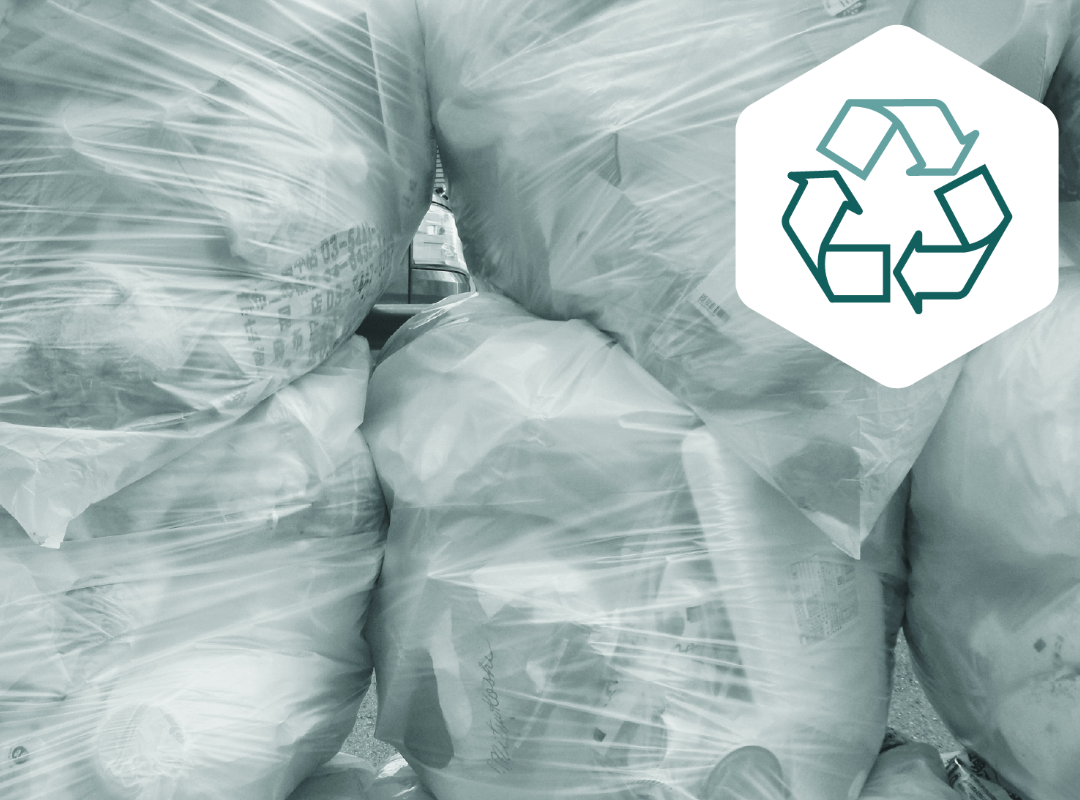
PPWR: The New Packaging Waste Regulation – What It Means for You

The Packaging & Packaging Waste Regulation (PPWR) is the European Union’s latest initiative to boost the circular economy by tackling packaging waste. This new EU PPWR regulation will significantly impact trade and businesses—especially in EU countries, but also in the UK. In this article, we explain what PPWR is, who it applies to, and what it means for your product packaging.
Created on 31.07.2025How Much Waste Is Caused by Packaging?
Packaging waste is a significant environmental issue. Packaging contributes a sizeable portion of overall municipal waste streams. As a matter of fact, according to WRAP data only 10% of plastic packaging produced worldwide is being recycled.
Reducing that volume is a core aim of EU circular economy policy.
The PPWR at a Glance
✅ A new EU regulation (not a directive) designed to reduce packaging waste across the EU
✅ Impacts various sectors (retail, hospitality, manufacturing, import/export)
✅ Applies to businesses manufacturing or placing packaging on the EU market
✅ Encourages recycling and bans non‑recyclable packaging
✅ Includes targets for recycled content, reuse, and extended producer responsibility (EPR)
What Is PPWR?
The PPWR (which stands for Packaging & Packaging Waste Regulation) is a binding EU regulation—meaning it applies directly across Member States with little room for national variation.
It replaces previous EU packaging directives and sets enforceable rules for all producers, importers, and distributors.
What Is the Circular Economy Action Plan?
The PPWR forms a key pillar of the EU's Circular Economy Action Plan, part of the broader so-called European Green Deal initiative.
These action plans aim to create a resource‑efficient, waste‑minimising economy by promoting recycling, reuse, and sustainable consumption. One of the main goals is for example to transform Europe into the first climate-neutral continent by 2050.

Who Does the PPWR Apply To?
It applies to companies that manufacture, import, or distribute packaging or packaged goods within the EU—including foreign businesses exporting into the EU market.
SMEs, large organisations, even start‑ups fall under its scope.
Non‑compliance risks include fines and market restrictions.
Does PPWR Apply to the UK?
Although the UK left the EU, UK‑based businesses exporting packaging or products into the EU must comply with EU PPWR rules.
As for domestic UK regulations, PPWR is not directly—and fully—binding, but UK regulators may adopt parallel rules or mutual recognition of certain standards.
Firms trading both in EU and UK markets should monitor developments and ensure compliance on both sides.
What Does PPWR Aim to Achieve?
Waste reduction goals
By 2040, packaging waste should be reduced by at least 15% compared to 2018 levels.
This ambitious aim is part of the EU’s broader strategy to reach climate neutrality by 2050—under the European Green Deal.
Recycled content targets & reuse targets
From 2030, all packaging placed on the market must be recyclable, and each material category must include a minimum percentage of post‑consumer recycled content (PCR).
There are reuse targets, particularly for the hospitality and food sectors: single‑use packaging is discouraged and, in many cases, banned. Operators will be incentivised to use refillable or returnable packaging systems. These approaches are all based on the Three R's of the waste management hierarchy.
Extended Producer Responsibility (EPR)
Under EPR, producers and distributors bear responsibility for the entire life cycle of their packaging. This includes collection, sorting, and recycling—whether handled directly or via third‑party EPR systems. The costs must be covered by the producer, to encourage eco‑design and recycling.
Labelling and registration
Uniform EU‑wide packaging labelling rules require clear marking of recyclability and guidance on correct disposal.
All packaging must be registered at EU level to enable tracking. Germany already has a similar system under its national Packaging Act, while in the UK recycling signs as the Widely Recycled label are used.
Ban on certain packaging forms
From 2030, specific items will be prohibited:
Small sachets for sauces or sugar
Miniature single‑use cosmetics and toiletries (e.g., hotel shampoo bottles)
Fruit & vegetable packaging under 1.5 kg
Lightweight shrink wrap used as secondary plastic packaging (e.g., bottle bundles)
Ultra‑thin plastic carrier bags
The PPWR promotes EU‑wide reusable packaging schemes, akin to Germany’s deposit‑return system for beverage bottles, especially in the hospitality and retail sectors.
Timeline and Legislative Status for PPWR
The proposal was published by the European Commission in December 2022.
It received approval from the EU’s Standing Committee in March 2024 and final endorsement in autumn 2024.
The regulation entered into force on 11 February 2025, and its provisions become legally binding from 12 August 2026 (18 months after entry into force).
Some industry groups have requested a delay until 1 January 2027, but no extension has yet been confirmed.
Why It Matters: Impact on Your Business
Implementing PPWR-compliant packaging may require changes in design, materials, and logistics.
Businesses should start early—especially SMEs—to assess packaging strategy and align with PPWR recycled content targets and reuse targets. Some sectors (e.g. medical, hazardous goods, material types like wood or ceramics) are exempt from certain rules—but exceptions are limited.
Impact of the PPWR for UK businesses
The EU Packaging and Packaging Waste Regulation will also affect companies based in the United Kingdom, even though the UK is no longer a member of the EU.
Why? Because many British companies are still strongly connected to the EU market.
If your UK company is exporting products with packaging to the EU, you should ensure that your packaging complies with PPWR requirements.
Conclusion: Opportunities & Challenges
The EU PPWR regulation signals a major shift for businesses across retail, production, and hospitality. While it sets ambitious targets on recyclable packaging, recycled content, and reuse, it also creates potential burdens—especially for smaller companies.
However, it presents an opportunity: strengthen your environmental credentials by adopting fully recyclable or reusable packaging early.
Getting ahead of the curve enhances compliance, reduces long‑term costs, and boosts your sustainability profile.
If you’d like to explore compliant materials or packaging strategies—or get sample free eco‑packaging for your products, contact us now!
Frequently Asked Questions about the PPWR
What is the circular economy action plan?
It’s an EU plan under the European Green Deal to drive reuse, recycling and sustainable production systems across all sectors—including packaging.
What is extended producer responsibility (EPR)?
EPR requires producers/distributors to take responsibility for the end‑of‑life of their packaging, including collection and recycling, often through funded schemes.
Who does the PPWR apply to?
It applies to all companies (EU or exporting into the EU) that manufacture, import, or place packaging or packaged goods on the EU market.
Does PPWR apply to the UK?
Not as a binding legislation directly, but UK companies exporting to the EU must comply. Also, bear in mind that similar rules may be adopted within the UK in the future as well.
Has the PPWR been published?
Yes—the regulation was proposed in December 2022, approved in 2024, and entered into force on 11 February 2025, becoming binding from 12 August 2026.